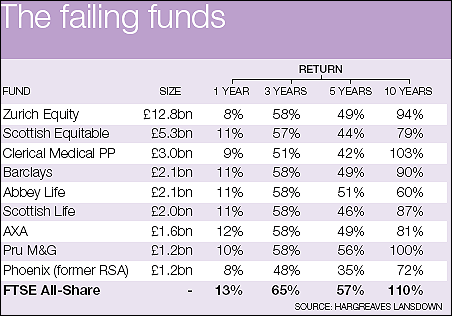Top 10 Private Pensions UK Compare Best Plan Providers
Post on: 22 Июнь, 2015 No Comment

How to Find the Right Personal Pension Plan
Choosing the best private pension plan could be the difference between living out your retirement in comfort and having to work into your 70s and beyond. We look at how to choose the private pension scheme that’s right for you.
According to the latest statistics; we’re all living longer. Now before you all start celebrating, have a think about how you’re going to support yourself through a possible 20+ years of retirement.
Unless you’re lucky enough to love your job so much that you plan on never retiring, you would be wise to consider setting up a pension sooner rather than later; and personal pensions are one of the options that you should think about.
Here’re seven pointers for what you should look for in a personal pension plan to help get you started:
1. Performance
The biggest contributing factor to the size of your pension pot when you retire is the performance of the fund you have invested in. As the old sporting proverb goes, form is temporary, but class is permanent; and private pension funds that do well in the short-term may not always last the distance.
Remember to judge the performance of your fund in the long-term. Most providers will send you an annual report which will tell you how much your pension pot is currently worth and what you will receive if you continue to contribute at your current rate. Always make sure you read these reports carefully, so that you can keep track of how your fund is performing year in and year out.
If you are unhappy with your fund’s performance then it is possible to transfer to another pension plan. However, you should always think carefully before doing this as it will usually incur a penalty clause. Also your pension provider will determine the transfer value of your personal pension scheme which could also take a bite out of your pension pot.
2. Flexibility
Taking out a private pension plan is a long term commitment which will require you to make regular payments over many years. Of course, your personal circumstances may change over time: you may wish to return to studying, take a sabbatical from work or unforeseen circumstances could reduce your income.
Because of this make sure you consider your ability to contribute to a pension over the long term rather than the short term before committing to a plan.
Luckily, pension plans now offer far greater flexibility in terms of stopping or varying payments and even being able to retire whenever you wish without being penalised. It is just a matter of making sure to compare pensions and compare pension companies to find those that best fits your needs.
3. Charges
Most personal pension plans are subject to annual administration fees which are usually deducted directly from your pension pot. You may also be subject to a one-off charge when you take out your pension plan or even if you wish to transfer your pension to another scheme.
Again, charges vary greatly from provider to provider so it is always a good idea to shop around for the best deal — after all, the more money your provider takes from your pension pot, the less you’ll have to spend on your retirement!
However, opting for the provider with the cheapest annual charges may not automatically be the best choice; instead you need to weigh up all the different features of each pension plan rather than just picking the cheapest one on the market.
4. Commissions
Personal Pensions gained rather a bad reputation in the 1980s through their miss-selling by over-enthusiastic middlemen fuelled by the promise of fat commissions.
Whilst things have improved massively since those dark days, most pension providers are still offering hefty commissions to middlemen for selling you their products.
These commissions are paid for by your contributions to your pension pot and are usually taken up-front or over the first couple of years of your personal pension plan. This means that there won’t be much left over to invest in your pension pot in the early stages of your plan.
A way to avoid paying commissions is to take out your pension direct with a bank, building society or life insurance company, or use a specialist pension discount broker.
Commissions are charged because your middleman is essentially giving you advice as to which pension plan best suits your need.
Of course you should only do this if you are confident of choosing the right pension yourself. Buying any financial product is not something that should be entered into lightly and, if you are unsure about anything, you should seek advice from the Pension Advisory Service (TPAS) or an Independent Financial Advisor.

5. Risk & reward
How much your pension pot grows is entirely dependent on the performance of the fund or funds that it is invested in. However, there is a certain amount of risk associated with investment and your pension portfolio may not always perform as expected.
Although you carry the risk, your investment is mostly dependent on the performance of the financial markets and the skill of the fund managers managing your investment. If your pension pot fails to grow as much as you expected then, come retirement day, you could find yourself with less than you bargained for.
The same rules apply to annuity rates which are also subject to fluctuations. If the market is suffering a ‘dip’ at the time that you choose to retire, then you could be forced to buy an annuity at a poor rate — significantly reducing the income from your personal pension plan.
6. Protection
Personal pension plans are not protected like ordinary savings accounts, which are covered up to Ј85,000 per person under the Financial Services Compensation Scheme (FSCS) in the event of your bank or building society going bust.
Unfortunately, the level of protection offered by the FSCS for private pension funds is not quite so straightforward.
Generally you would be protected if the fund manager goes bust and you lose your pension pot, but it’s not safe to assume this and you should always check the issue of protection with your pension provider before you commit.
However, if a company your fund has been invested in goes under then you will not be protected because pensions are classed as a risk-based investment like stocks and shares. This is why it’s so important to have a well balanced pension portfolio with the risk spread across numerous investments. The best private pension plans rely on advice from fund managers adept at negotiating these risks.
7. Stakeholder pensions
If you are on a low or irregular income then you may wish to consider a stakeholder pension. Stakeholder pensions work in exactly the same way as other personal pension plans and were introduced by the government to help those on lower incomes save for their retirement.
Typically, stakeholder pensions have lower minimum payments and you will not be penalised for taking a break in your payments. If you feel like this may be a circumstance that you could find yourself in, then you should really consider this option as it may save you in the long term. Also the annual fees charged by stakeholder pension providers are controlled by limits set by the Government to keep costs down.














